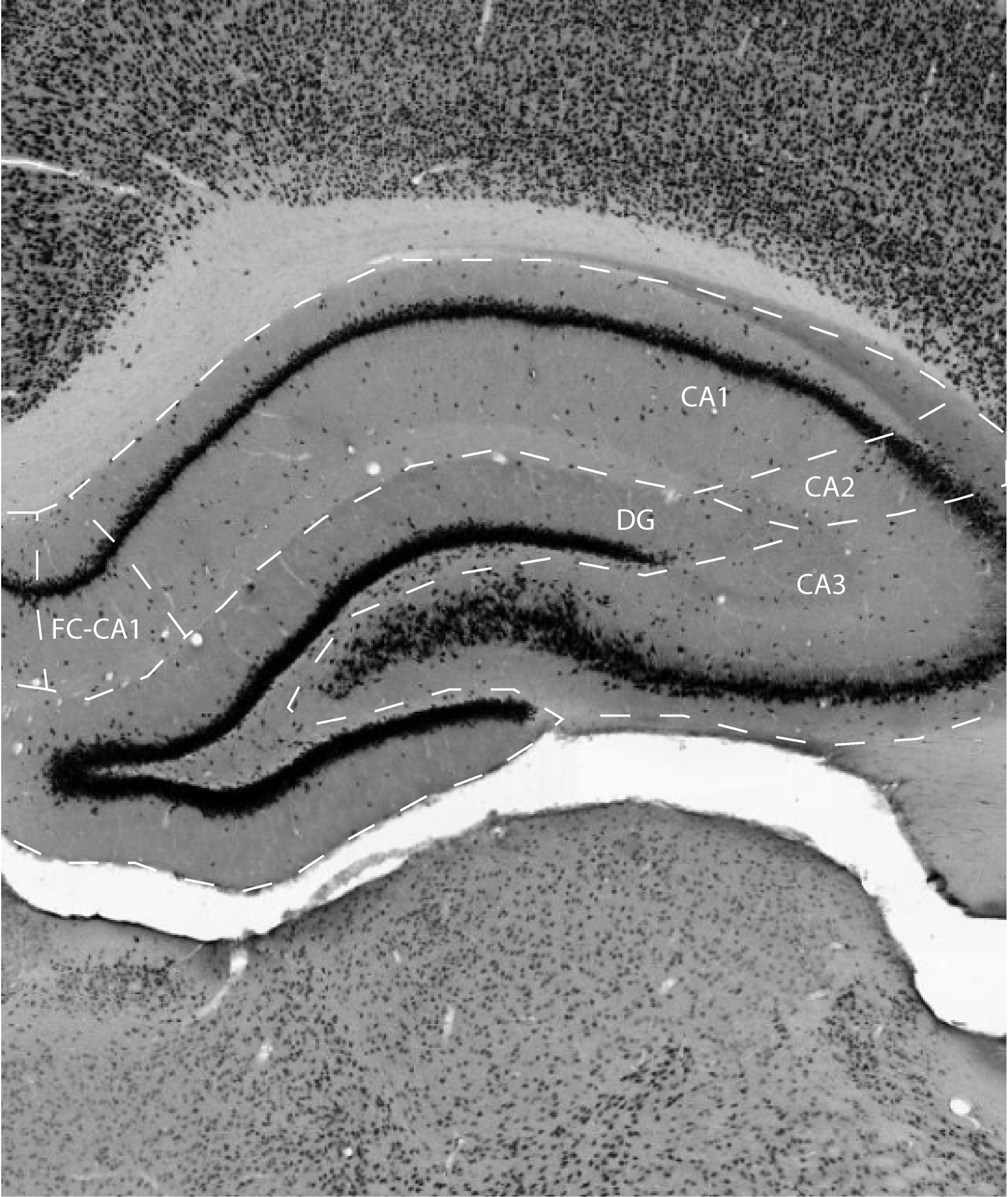The Cornu Ammonis or Ammon's Horn (CA) also referred to as hippocampus proper, is characterized by a thin layer of densely packed pyramidal cells, enclosed by an outer plexiform layer and an inner polymorph layer, also called stratum oriens. The outer plexiform layer, which contains the apical dendrites of the pyramidal cells, is generally subdivided into a number of sublayers. These will be detailed in the descriptions of its three main subdivisions, area CA1, CA2, and CA3 (according to some accounts a field CA4 can be differentiated as well, but because this is ill-defined with respect to the hilus of the dentate gyrus, this practice will not be followed here (Witter, 2004). The CA field is bordered on one side by the dentate gyrus (DG); this side of CA is generally referred to as the proximal part. The opposite distal side is where CA meets the subiculum (SUB). The CA, and thus its constituting subfields, is a three-dimensionally complex structure such that its orientation is often difficult to grasp when seen in different planes of sectioning.
These two parts of the Ammon's horn are characterized by the
presence of large pyramidal cells, forming a few closely packed layers
on top of one another. Both have a layered appearance that is shared
with CA1 and the subiculum. Below the pyramidal cell-layer, a
relatively cell-free layer is seen, the so-called stratum oriens. Below
the stratum oriens the fibre tract alveus can be found. Directly
superficial to the pyramidal cell layer of CA1, the stratum radiatum is
situated (darkly stained in TIMMs stain). Between the stratum radiatum
and the hippocampal fissure, the stratum lacunosum-moleculare is found
(not stained with the TIMM-stain, but appearing darker than the stratum
radiatum in material stained for AChE). These superficial layers, the
stratum radiatum and lacunosum-moleculare contain the apical dendritic
trees of the pyramidal cells.
References -> access a list of references
NIF Navigator (external link) -> search the Neuroscience Information Framework |
|
